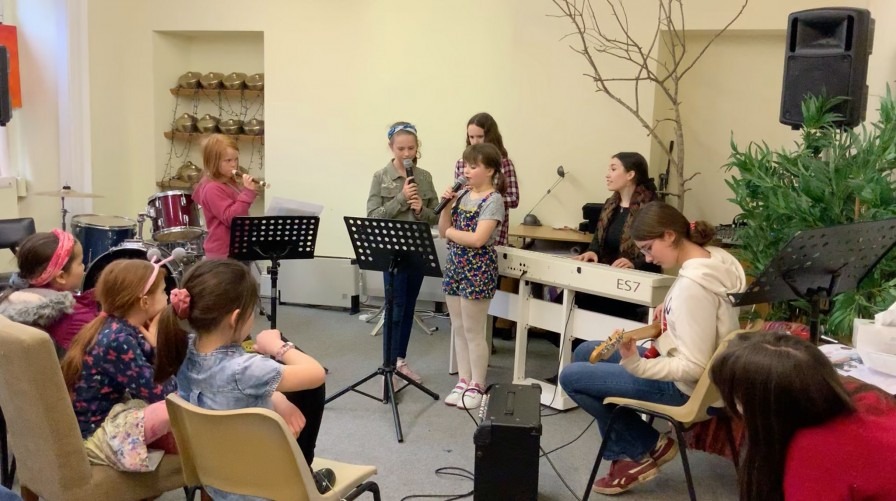The focus on process – where improvisation can bring freedom

Freedom to be creative often comes from the power of knowing you can make a mistake and that it will not matter. The inability to do this can form a huge barrier in a person’s engagement with making music and therefore, whilst teaching, we have to find inventive ways to allow our students to experience consequence-free mistake making. Ways to do this could include anything from playing with the musicality of speech, or looking at the mathematics of music or using humour. However, this treatment becomes increasingly difficult in a formal setting, such as a class in school, as you are often not given:
- The time to wait for the person to come to you and let down their barriers to learning
- The time to give the individual attention one person needs to find their way to flourish (everyone’s process is different)
- The permission for music creation to be goalless – to be about the process rather than the product
- The permission to turn up to a session without a plan to see what happens – and therefore bounce from the students’ own creativity
Exploring improvisation (not in the sense of ‘jamming’ until something sticks, but in truly being hyper-aware and responsive to the music happening around you) for a music teacher with a full set of tools and trust in their own intuition is one way we can sidestep some of these issues and make music truly about the process rather than the product, as long as funders allow us to do this. There is an agreement that there does need to be parameters set within improvisation (too much choice can limit creativity by becoming overwhelming) – though this can literally be providing drums rather than keyboards – and a catalyst given as a spark but from there working intuitively and creatively is key. The choices can be simple (e.g. binary choices for students who can only make these) without losing that element of creativity without the possibility of mistakes or value judgement.
Music can bridge the gap in a diverse group as everyone can access and engage in music. The intention of this work is freedom and release – not by passing grades or hitting milestones – but by self-expression and experiencing something more than copying dots written on the page. This makes the benefit of this work hard to measure, but this arguably doesn’t make it less important. We are lucky that improvisation is coming into the curriculum more now and there is a real recognition of the skills that it gives – this is a movement we can get behind!
TAKEN FROM A CPD DISCUSSION LED BY JILLY JARMAN AND TOM LEAH
